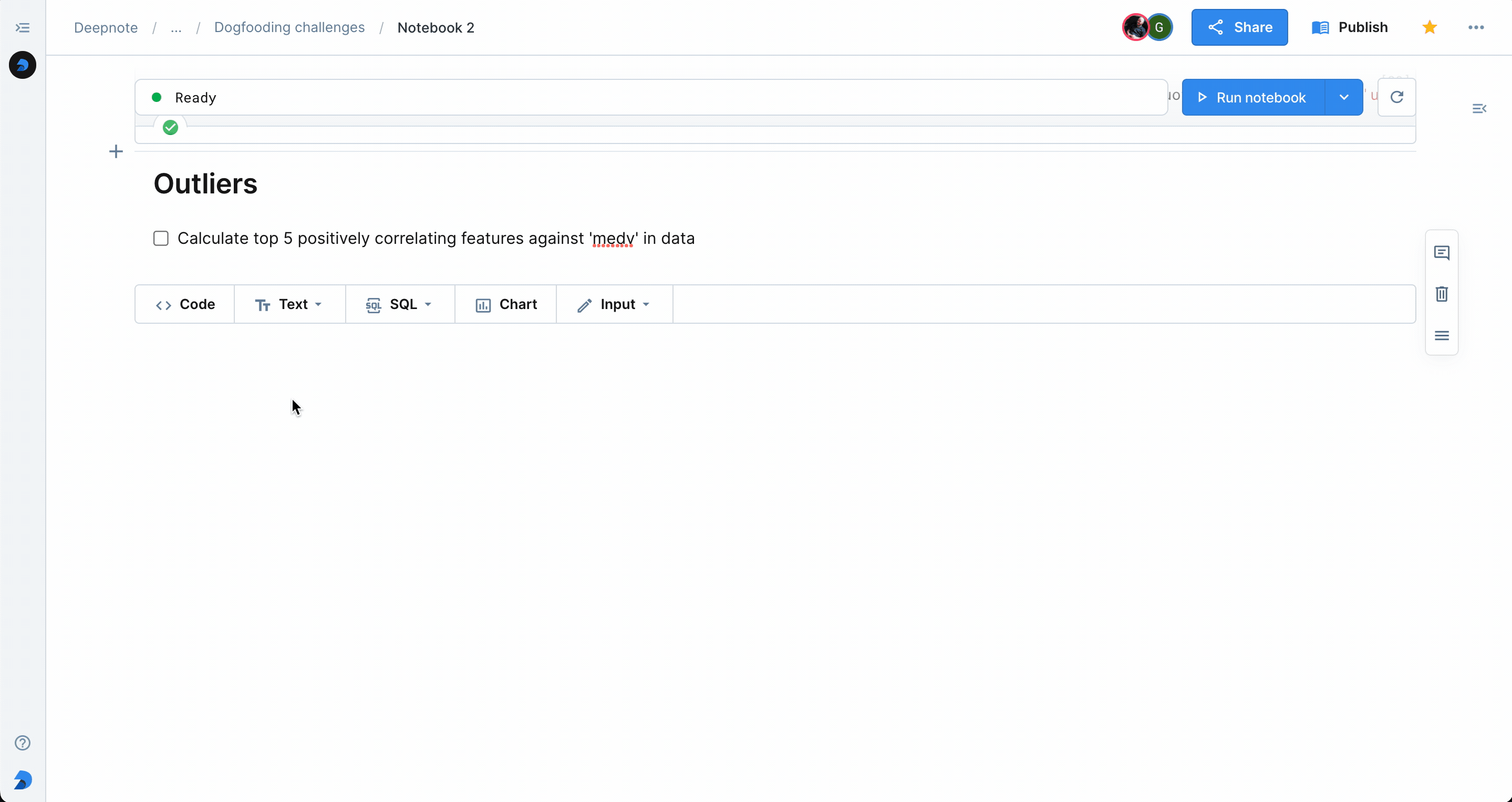Notebooks and AI: the perfect match
Generative AI is rapidly revolutionizing the landscape of data analytics. The newfound capability of employing natural language to work more effectively with analytical code; generating data visualizations from business inquiries; and sifting through large datasets for insights in a conversational manner all represent exhilarating advancements on the horizon. While it remains challenging to forecast the full scope of AI's integration into regular analytical workflows, one thing is certain: the innovations we've seen so far merely hint at the vast potential yet to be tapped.
At Deepnote, we're firmly convinced that data notebooks are destined to play a pivotal role in spearheading this transformation. Although the recent surge in generative AI began with a shift towards straightforward chat interfaces, we are of the opinion that notebooks present a more dynamic and versatile platform for AI-assisted data exploration.
The strength of interactive dialogues is not confined to chat bubbles. Stepping into a chat window often means leaving your workspace behind - it makes you aware of using an external tool. In contrast, notebooks offer an ideal platform for a more harmonious integration of AI assistance, helping you stay immersed in your workflow. The modular structure of notebooks and the iterative cycle through inputs and outputs present intuitive touchpoints to engage AI as and when required, even proactively without user prompts.
Moreover, notebooks are a repository of the rich context that Large Language Models (LLMs) require to deliver the most pertinent responses. Notebooks encapsulate not only your code, files, and data, but also the accompanying narrative, your analytical goals, and your thought process in approaching a problem. In Deepnote, this extends beyond a single notebook, where insights about your project structure add another layer of valuable context. This wealth of organizational knowledge presents enormous potential for AI assistance to leverage.
AI Copilot
We are super excited to introduce the first member of the Deepnote AI family: AI Copilot. With this release, we primarily wanted to enable our power-users: data scientists and analysts who do most of their work in Python (or other coding languages). These seasoned data practitioners mostly wish to cut back on repetition and boilerplate code; for them, efficiency is paramount.
AI Copilot provides code suggestions with lightning speed, understanding the full scope of your notebook. The more text and code you write as context, the more relevant code suggestions you will see. With this tool at your disposal, you can focus more on the big picture, letting the AI handle the more repetitive and tedious parts of coding tasks.

To provide the quality we needed, we partnered up with our friends at Codeium. They deliver a combination of blazing speed, great model performance and generous context windows. In our joined Beta programme, customers reported massive boost to their productivity, on par with what they experience in classic IDEs using Github Copilot - now with all the extra benefits of collaborative notebooks.
Next in Deepnote AI
Code completion is the first step in our journey to transform data work in notebooks via the power of AI. We have many more exciting features in the work, aiming to further enhance productivity for analytics professionals, but also to radically lower the barrier to entry to impactful data work for anyone, irrespective of their technical skills.
We are soon introducing conversational AI features that will aid in generating, editing, debugging, and understanding both code and SQL. Beyond this, we are working on more ambitious projects designed to harness the unique attributes of notebooks as a computational medium.
Keep an eye out for updates as we continue to unveil these exciting developments. The future has never looked brighter for notebooks!